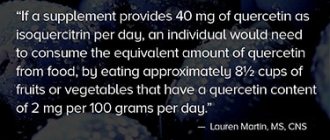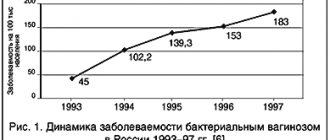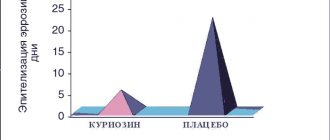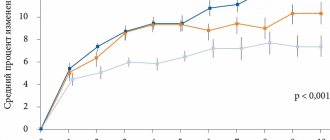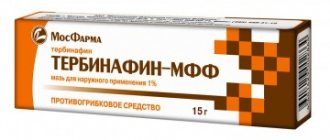Researchers from the LSTM Cochrane Infectious Diseases Group have published 2 systematic reviews looking at the safety of mefloquine (a drug used to prevent malaria).
The study authors note that mefloquine is an effective drug, but patients should be informed about possible side effects before deciding on mefloquine therapy. Since its introduction into clinical practice in the 1980s. psychiatric side effects were known. But such a large-scale study of adverse events has never been done before. The authors pooled data from more than 50 randomized (RCT) and non-randomized studies involving more than 1,000,000 patients and compared mefloquine with alternative drugs.
Pharmacological properties of the drug Mefloquine
Antimalarial drug. Mefloquine acts on asexual intracellular forms of human malaria pathogens: Plasmodium falciparum, Plasmodium vivax, Plasmodium malariae and Plasmodium ovale. Mefloquine is effective against malaria pathogens that are resistant to other antimalarial drugs, such as chloroquine, proguanil, pyrimethamine and combinations of pyrimethamine with sulfonamides. P. falciparum resistance to mefloquine have been described, mainly in Southeast Asian countries. Cross-resistance to mefloquine and halofantrine has been observed. Eating significantly accelerates the rate and extent of absorption, increasing bioavailability by approximately 40%. Maximum plasma concentrations are reached 6–24 hours (average 17 hours) after a single dose of mefloquine. When taken orally at a dose of 250 mg once a week, the equilibrium maximum concentration in the blood plasma (1000–2000 mcg/l) is achieved after 7–10 weeks. The volume of distribution of mefloquine is about 20 l/kg, which indicates penetration of the drug into many tissues. Mefloquine can accumulate in red blood cells, which contain malaria parasites, at concentrations approximately twice those found in plasma. Plasma protein binding is about 98%. The MIC of mefloquine is about 600 μg/L. Penetrates through the placenta. Passes into breast milk in minimal quantities. Two metabolites of mefloquine have been identified in humans. The main metabolite (2,8-bis-trifluoromethyl-4-quinoline carboxyacid) is inactive against P. falciparum . The half-life of mefloquine ranges from 2 to 4 weeks (average about 3 weeks). Total clearance is about 30 ml/min. Most of mefloquine and its metabolite are excreted in bile and feces. There are no age-dependent changes in the pharmacokinetics of mefloquine. The pharmacokinetics of mefloquine may change during acute malaria. During long-term antimalarial prophylaxis, the half-life of mefloquine does not change.
Indications for use of the drug Mefloquine
Treatment and prevention of malaria Mefloquine is particularly indicated for the treatment of malaria caused by strains of P. falciparum that are resistant to other antimalarial drugs. It can be prescribed for the treatment of malaria caused by P. vivax and malaria of mixed etiology. Malaria prophylaxis with mefloquine is recommended for persons traveling to malaria-endemic regions, especially regions with a high risk of infection by strains of P. falciparum that are resistant to other antimalarial drugs. Emergency therapy (self-help) Mefloquine is recommended to be taken independently as emergency treatment if malaria is suspected, if seeking urgent medical help is not possible.
Use of the drug Mefloquine
Orally after meals, with a sufficient amount of liquid. Treatment The total therapeutic dose of mefloquine for non-immune individuals is 20–25 mg/kg. For persons with partial immunity, a lower total dose of 15 mg/kg may be sufficient. Thus, non-immune individuals weighing more than 45 kg should receive a total of 1250–1500 mg mefloquine, and partially immune individuals of the same body weight should receive 750–1000 mg mefloquine. If the patient vomits within 30 minutes after taking the drug, the full dose of mefloquine should be re-administered. If vomiting occurs 30–60 minutes after administration, an additional 1/2 dose is prescribed. After treatment of malaria caused by P. vivax , prevention of relapses using aminoquinoline derivatives (for example, primaquine) is indicated to eliminate hepatic forms of plasmodium. If a full course of treatment with mefloquine after 48–72 hours does not lead to an improvement in the patient’s condition, it is necessary to decide on prescribing another drug. For severe acute malaria, mefloquine can be given after an initial course of IV quinine therapy of at least 2–3 days. Most drug interactions leading to side effects can be prevented if mefloquine is administered no earlier than 12 hours after the last dose of quinine. In areas with multidrug-resistant malaria, initial treatment with artemisinin or its derivatives, followed, if possible, by mefloquine, may be appropriate. Prevention The prophylactic dose of mefloquine is approximately 5 mg/kg body weight once a week. For adults and children weighing more than 45 kg, this corresponds to approximately 250 mg of mefloquine once a week. In children and adults weighing less than 45 kg, the daily dose is reduced accordingly. The drug should be taken for the first time no later than 1 week before arrival in a malaria-endemic region. If this is not possible, a loading dose of the drug must be prescribed. For adults weighing more than 45 kg, it is 250 mg per day for 3 consecutive days, and then 250 mg once a week. Weekly doses of mefloquine should always be taken on the same day of the week. To reduce the risk of malaria after leaving an endemic region, prophylaxis is continued for another 4 weeks. Self-administered emergency therapy Mefloquine can be recommended for self-administration in cases where it is not possible to obtain emergency medical care. Self-treatment should begin with a dose of about 15 mg/kg. If medical help continues to remain unavailable within 24 hours, and severe adverse reactions to the drug do not appear, after 6-8 hours you can take the second part of the total therapeutic dose. Patients weighing more than 60 kg should take another 250 mg 6–8 hours after repeated administration. Patients should be advised to consult a doctor even if after self-treatment they feel completely recovered.
Side effects of the drug Mefloquine
The most common symptoms are nausea, vomiting, dizziness, imbalance, headache, drowsiness, insomnia, nightmares, diarrhea, and abdominal pain. Adverse reactions during prophylaxis with mefloquine are usually mild and decrease with continued use. Less commonly observed are motor and sensory neuropathy (including with paresthesia), convulsions, visual impairment, tinnitus, vestibular disorders, anxiety, restlessness, depression, memory loss, confusion, hallucinations, psychotic or paranoid reactions, isolated cases of encephalopathy; arterial hypo- or hypertension, flushing, fainting, tachycardia, palpitations, bradycardia, arrhythmia, extrasystole, isolated cases of AV block; skin rash, erythema, urticaria, itching, hair loss, isolated cases of erythema multiforme, Stevens-Johnson syndrome; muscle weakness, muscle cramps, myalgia, arthralgia; asthenia, general malaise, weakness, fever, chills, anorexia; transient increase in transaminase activity, leukopenia or leukocytosis, thrombocytopenia. Due to the long half-life of mefloquine, side effects may develop or persist for up to several weeks after the last dose of the drug.
Side effects
When you use this drug to prevent malaria, the following side effects may occur:
- nausea, abdominal pain, vomiting , diarrhea , transient digestive tract disorders;
- headaches , fainting , dizziness , extrasystole ;
- transient changes in blood counts, leukocytosis , increased transaminase , thrombocytopenia ;
- depression , increased seizure activity, psychosis (disappears after discontinuation of the drug).
During treatment the following are observed:
- indigestion , weakness and fatigue, dizziness , headaches , tinnitus, insomnia ;
- vision problems, anxiety , disorientation , poor memory;
- hallucinations and confusion , seizures and acute psychosis ;
- increase or decrease in blood pressure, bradycardia or tachycardia;
- transient disturbances of heart rhythm and cardiac conduction;
- allergic rashes, hair loss, urticaria , itchy skin;
- changes in laboratory blood tests, erythema multiforme .
Special instructions for the use of the drug Mefloquine
Mefloquine may increase the risk of seizures in patients with epilepsy. Therefore, mefloquine can be prescribed to such patients only for the purpose of treatment and if there are absolute indications for its use. In patients with impaired liver function, the elimination of mefloquine may be slowed down, resulting in increased plasma concentrations of the drug. If anxiety, depression, restlessness, or impairment of consciousness develops during prophylactic use of mefloquine, the drug should be discontinued. Experience with mefloquine in children under 3 months of age or weighing less than 5 kg is limited.
Clinical trials of mefloquine for COVID-19
On the website of the State Register of Medicines in the section Register of Permitted Clinical Trials as of September 14, 2020, no clinical trials of mefloquine for the prevention and treatment of COVID-19 were registered [10].
According to ClinicalTrials.gov, there are currently 2 studies registered. We are not currently recruiting participants. The randomized, multicenter, open-label trial NCT04501783 compares the effectiveness of treating mild to moderate forms of COVID-19 with favipiravir versus standard therapy, one of which is mefloquine for 10 days. The second study (NCT04347031) is planned to evaluate the effectiveness of mefloquine compared with hydroxychloroquine, both as monotherapy and when used in combination with azithromycin ± tocilizumab.
Information on the results of a clinical trial of mefloquine in patients with COVID-19 was found on the FMBA website [11]. Publications of the results of this study in peer-reviewed scientific journals have not yet been found.
Drug interactions Mefloquine
Concomitant use of mefloquine and other related compounds (quinine, quinidine and chloroquine) may cause ECG changes and increase the risk of seizures. Due to the risk of potentially life-threatening prolongation of the QTc , halofantrine should not be administered with or after mefloquine. Prescribing mefloquine to patients taking anticonvulsants (for example, valproic acid, carbamazepine, phenobarbital or phenytoin) may worsen their anticonvulsant effect, reducing their plasma concentrations. In some cases, the dose of anticonvulsants may need to be adjusted. If mefloquine is taken concomitantly with oral live typhoid vaccines, a decrease in the immunogenicity of the latter cannot be ruled out. Therefore, vaccination with live attenuated vaccines must be completed no later than 3 days before the first dose of mefloquine.
Interaction
The combination of the drug with antiarrhythmic drugs, beta-blockers, H1-histamine receptor blockers, with antihistamines, with drugs that affect cardiac conduction, with tricyclic antidepressants, with phenothiazine antipsychotics can lead to a prolongation of the QTc interval.
Mefloquine reduces the effectiveness of anticonvulsants and reduces their plasma concentration. Dosage adjustment of medications with anticonvulsant activity is necessary.
The medicine reduces the effectiveness of live typhoid vaccines. Vaccination must be completed at least 3 days before taking the drug.
Inhibitors of the cytochrome P450 isoenzyme are able to change the metabolism and pharmacokinetics of the drug, this leads to an increase in its plasma concentration and the occurrence of adverse reactions. When combining the drug with inhibitors of the CYP3A4 isoenzyme, take special care.
The metabolism of the drug can also be affected by inducers of the CYP3A4 isoenzyme, which reduces its plasma concentrations and the effectiveness of treatment.
Use caution when combining the drug with HIV protease inhibitors.
With caution, the medicine is taken simultaneously with Bisoprolol , atomoxetine , Betaxolol , Betamethasone myopathy and cardiomyopathy develop ), Amlodipine , and hydrochlorothiazide .
Mefloquine is contraindicated in combination with 4-nitro-N-[(1RS)-1-(4-fluorophenyl)-2-(1-ethylpiperidin-4-yl)ethyl]benzamide hydrochloride , with Amiodarone , Haloperidol .
The medicine reduces the effectiveness and accelerates the metabolism of valproic acid , vortioxetine .
It is better not to take Mefloquine with other drugs for malaria, for example with hydroxychloroquine , or in combination with Dexamethasone , Fluoxetine , Rifampicin , Carbamazepine , Ketoconazole , Clozapine , lurasidone , prednisone , Risperidone .
The drug is not taken simultaneously with ziprasidone , ivabradine + metoprolol , ivabradine , lithium carbonate .
Mefloquine overdose, symptoms and treatment
In case of an overdose of mefloquine, the symptoms listed in the SIDE EFFECTS section may develop, but more pronounced. Gastric lavage, monitoring of cardiac function (including ECG) and neuropsychic status for at least 24 hours are recommended. If necessary, symptomatic and supportive measures are taken, in particular, aimed at eliminating disorders of the cardiovascular system.
List of pharmacies where you can buy Mefloquine:
- Moscow
- Saint Petersburg
Treatment of coronavirus
There is evidence that the drug Mefloquine, along with other antimalarials, may be effective in treating the new coronavirus COVID-19 . The Federal Medical and Biological Agency (FMBA) even presented a treatment regimen for a viral disease with this drug.
However, the medicine has quite serious side effects. Therefore, doctors urge patients not to self-medicate and not to try experimental methods to combat the virus.
